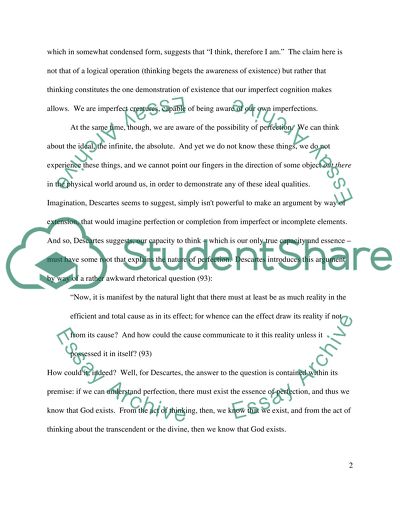Rene Descarte's Faulty Reliance Essay Example | Topics and Well Written Essays - 1250 words. Retrieved from https://studentshare.org/philosophy/1442866-descartes
Rene Descarte'S Faulty Reliance Essay Example | Topics and Well Written Essays - 1250 Words. https://studentshare.org/philosophy/1442866-descartes.


